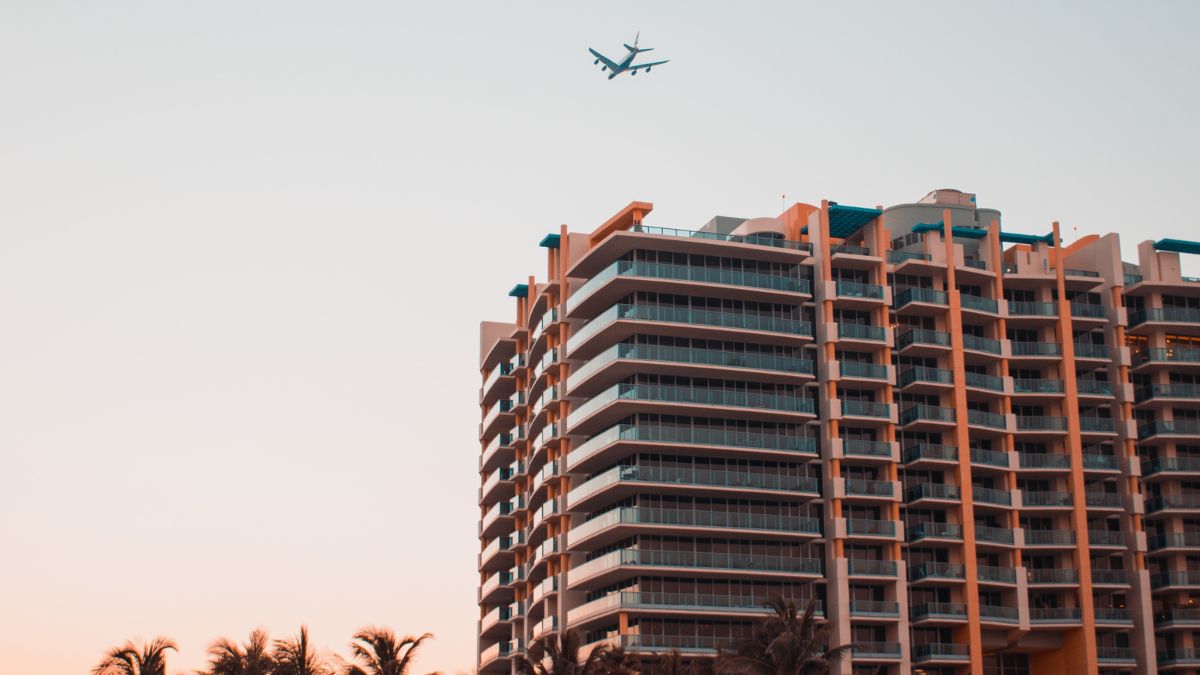Should You Book Hotel Or Flight First: Decoding the Best Travel Planning Strategy

As participants in Amazon Associates and other programs, we earn from qualifying purchases. This comes at no additional cost to you. For more details, see our Affiliate Disclosure.
In the world of travel planning, one question has long perplexed even the savviest of globetrotters: should you book your hotel or flight first? Although it may seem like a trivial decision, your choice can greatly impact the overall success of your trip, not to mention your wallet. This article aims to unravel the mystery behind this age-old conundrum, providing you with the insights and tools necessary to make the best choice for your upcoming adventure.
In the following sections, we will delve into the various factors and considerations that come into play when planning a trip, including potential savings, availability, and flexibility. We will also explore how different types of travelers might benefit from alternative strategies, allowing you to tailor your approach to your unique travel needs. By the end of this article, you will be well-equipped to make an informed decision, allowing you to maximize your travel experience and minimize any potential stressors.
The Flight-First Approach: Advantages and Drawbacks
One common strategy employed by many travelers is to book flights before securing accommodations. This approach has its own set of advantages and drawbacks that are worth considering when planning your trip.
Advantages
- Fixed travel dates: By booking your flights first, you establish firm travel dates, which can make it easier to plan the rest of your trip, such as activities and accommodation arrangements.
- Limited flight options: Flight schedules tend to be less flexible than hotel availability, particularly for specific routes or smaller airports. Securing your flights first can ensure you get the best options for your travel itinerary.
- Airfare deals: Flight prices can be volatile, with the potential for significant savings if you can snag a great deal. Booking your flight first allows you to take advantage of these savings and build your trip around the best airfare.
- Frequent flyer benefits: For those who participate in airline loyalty programs, booking flights first can help you maximize your points or miles and take advantage of any exclusive deals or perks.
Drawbacks
- Reduced accommodation options: Booking flights first may limit your choices when it comes to accommodations, particularly if you’re visiting a popular destination during peak travel season.
- Inflexibility: Once you’ve booked your flights, it can be difficult and expensive to change your travel dates or cancel your trip. This can be a disadvantage if unforeseen circumstances arise or better accommodation deals become available later on.
- Potential cost imbalance: By focusing on securing the best flight deal, you might end up with higher accommodation costs, as you’ll need to find lodging that fits your fixed travel dates.
- Missed package deals: In some cases, you might miss out on attractive hotel and flight package deals offered by travel agencies or online booking platforms, which bundle the costs of both services and offer overall savings.
The flight-first approach can be beneficial for travelers seeking the best airfare deals and prioritizing fixed travel dates. However, it’s essential to weigh the advantages against the drawbacks, considering your unique travel preferences and requirements before making a decision.
The Hotel-First Strategy: Pros and Cons
An alternative to booking flights first is the hotel-first strategy, in which travelers prioritize securing accommodations before finalizing their flights. This method also has its own set of pros and cons that can influence your travel planning process.
Pros
- Greater accommodation choices: Booking your hotel first allows you to have a wider range of options, particularly during peak travel seasons when popular accommodations can fill up quickly.
- Special lodging deals: Similar to airfare, hotel prices can vary, and grabbing a discounted room rate can help you save on your overall trip expenses. Booking accommodations first ensures you don’t miss out on these deals.
- Flexible travel dates: With your accommodations locked in, you can be more flexible in choosing flight dates. This can lead to better flight deals, as you have the option to select from a broader range of dates.
- Customized experience: By focusing on accommodations first, you can prioritize the aspects that are most important to you, such as location, amenities, or unique lodging experiences, ensuring a more personalized trip.
Cons
- Limited flight options: Once your hotel booking is confirmed, you may face limited options for flights, which can lead to higher airfare costs, inconvenient layovers, or less desirable flight times.
- Difficulty with cancellations: Similar to the flight-first approach, canceling or changing hotel reservations can be challenging and costly, especially if you’ve already booked a non-refundable room or special deal.
- Overemphasis on accommodations: By prioritizing your hotel booking, you might end up overinvesting in your accommodations at the expense of other aspects of your trip, such as flights, activities, or dining experiences.
The hotel-first strategy can be an excellent option for travelers who prioritize accommodation options and flexibility in their travel dates. However, it’s crucial to consider the potential drawbacks and evaluate how they might impact your overall travel experience before committing to this approach.
Price Considerations: Finding the Best Deals for Flights and Accommodations
When planning your trip, finding the best deals for both flights and accommodations is crucial to ensure you stay within your budget and maximize your travel experience. Here are some strategies and tips to help you find the best prices for your upcoming adventure.
- Be flexible with travel dates: If your schedule allows it, being flexible with your travel dates can lead to significant savings on both flights and accommodations. Prices often fluctuate based on supply and demand, so avoiding peak travel times or considering alternative dates can yield better deals.
- Use comparison websites and tools: Utilize travel search engines and aggregator websites such as Google Flights, Kayak, or Skyscanner for flights, and Booking.com, Expedia, or HotelsCombined for accommodations. These platforms allow you to compare prices from multiple providers, making it easier to find the best deals.
- Set up price alerts: Many travel websites and apps offer price alert features that notify you when prices for flights or accommodations drop. By setting up these alerts, you can stay informed about the best deals without having to constantly monitor prices yourself.
- Consider alternative airports and accommodations: Sometimes, flying into a nearby airport or staying in a less popular neighborhood can result in considerable savings. Research alternative options, and weigh the potential savings against the convenience and accessibility of your preferred choices.
- Book during the right window: While there is no universal “best time” to book flights or hotels, many studies suggest that booking several weeks or even months in advance can lead to better prices. Keep an eye on price trends, and consider booking when you notice a good deal, as waiting too long may result in higher prices.
- Leverage loyalty programs: Participating in airline and hotel loyalty programs can lead to exclusive deals, discounts, and rewards. If you frequently travel with specific airlines or stay at particular hotel chains, make sure to take advantage of these programs to maximize your savings.
- Travel during the off-peak season: Traveling during the off-peak season can result in lower prices for both flights and accommodations, as well as fewer crowds at popular tourist destinations. Research the best times to visit your desired destination, and consider planning your trip during a less popular time of year.
- Look for package deals: As mentioned earlier, some travel agencies or online booking platforms offer package deals that bundle flights and accommodations. These packages can often lead to overall savings and simplify the booking process.
By taking these price considerations into account, you can make more informed decisions about booking flights and accommodations and ultimately find the best deals for your travel needs.
Timing Matters: When to Book for Optimal Savings and Availability
Strategic timing can play a significant role in securing the best deals and ensuring availability for both flights and accommodations. While there is no one-size-fits-all answer, there are general guidelines and tips to help you determine the optimal booking window for your travel needs.
Flights
- Domestic travel: For domestic flights, it’s generally recommended to book between one and three months in advance. Airfare prices tend to be more stable than international flights, but booking too early or too late can still result in higher prices.
- International travel: For international flights, booking further in advance, typically between three and six months, can often yield better deals. Keep in mind that prices may vary depending on factors such as the destination, time of year, and specific airline policies.
Accommodations
- Popular destinations and peak seasons: If you’re traveling to a popular destination during peak travel season, it’s advisable to book accommodations as early as possible, often several months in advance. This ensures that you have the best options in terms of availability, location, and price.
- Off-peak travel and lesser-known destinations: For off-peak travel or less popular destinations, booking accommodations a few weeks to a couple of months in advance is generally sufficient. You may find better deals closer to your travel dates, as hotels may lower their rates to fill vacant rooms.
Additional timing tips
- Be mindful of holidays and events: Local holidays, festivals, and events can significantly impact both flight and hotel availability and pricing. Research your destination’s calendar and plan accordingly.
- Midweek savings: Flights and accommodations are often cheaper during the week, particularly on Tuesdays and Wednesdays, as demand is generally lower compared to weekends.
- Last-minute deals: While booking last minute can be risky in terms of availability, there are occasionally deals to be found for flights and accommodations. This strategy is more suitable for flexible travelers who are willing to take a chance on a spontaneous trip.
- Utilize cancellation policies: Some hotels offer flexible cancellation policies, allowing you to book in advance and lock in a good rate while still having the option to cancel or change your reservation if a better deal arises closer to your travel dates.
The key to finding the optimal booking time for your flights and accommodations lies in understanding your destination, being aware of seasonal factors, and monitoring prices and availability trends. By staying informed and flexible, you can maximize your chances of securing the best deals and enhancing your overall travel experience.
Navigating Airfare and Hotel Package Deals: Are They Worth It?
Airfare and hotel package deals can be an attractive option for travelers seeking to simplify their booking process and potentially save on their overall trip expenses. Offered by travel agencies, airlines, or online booking platforms, these bundles often provide discounted rates for flights and accommodations, making them an appealing choice for budget-conscious travelers.
By streamlining the booking process and consolidating your travel arrangements, package deals can also save you time and energy, allowing you to focus on other aspects of your trip planning.
However, it’s essential to carefully evaluate these package deals before committing to them, as they may not always be the best fit for every traveler.
In some cases, package deals may include flights with inconvenient layovers, restrictive booking terms, or accommodations that don’t align with your preferences. Additionally, it’s crucial to compare the package price with the combined cost of booking flights and accommodations separately, as individual deals might still offer better savings.
When considering a package deal, be sure to read the fine print, research the included flights and hotels, and weigh the potential benefits against any drawbacks or limitations. By doing so, you can make an informed decision and determine whether a package deal is the right choice for your travel needs.
Flexibility and Contingency Plans: Preparing for Unexpected Changes
Travel plans can sometimes be disrupted by unforeseen circumstances, such as weather-related delays, personal emergencies, or global events. To ensure a smooth and enjoyable trip, it’s important to remain flexible and have contingency plans in place to adapt to any unexpected changes.
- Prioritize refundable bookings: When booking flights and accommodations, consider choosing refundable or flexible options whenever possible. While these options may come at a slightly higher cost, they can provide peace of mind and financial protection in case your plans change.
- Invest in travel insurance: Travel insurance can help cover the costs associated with trip cancellations, medical emergencies, or lost luggage. By purchasing a comprehensive policy, you can safeguard your investment and minimize the financial impact of any unexpected events.
- Monitor local and global news: Stay informed about any developments that might impact your travel plans, such as weather forecasts, political unrest, or health advisories. This will enable you to make timely decisions and adjust your plans accordingly.
- Have a backup plan: Develop alternative itineraries or options for your trip in case your original plans are disrupted. This might include researching nearby destinations, alternative accommodations, or different modes of transportation.
- Keep important information handy: Store essential travel information, such as airline and hotel contact numbers, booking confirmations, and local emergency numbers, in an easily accessible location, both digitally and in print. This will allow you to quickly address any issues that may arise during your trip.
- Maintain open communication: If you’re traveling with others, make sure to keep the lines of communication open and discuss any potential changes to your plans. This will help ensure everyone is on the same page and can adapt to any unexpected circumstances.
- Embrace adaptability: While it’s natural to feel disappointed or frustrated when your travel plans change, maintaining a positive attitude and embracing flexibility can help you make the most of your trip, regardless of any obstacles.
By adopting a flexible mindset and preparing for potential changes, you can navigate any unexpected challenges that arise during your travels, ensuring a more enjoyable and stress-free experience.
The Importance of Research: Utilizing Travel Tools and Resources
Thorough research is an essential component of successful travel planning, as it allows you to make informed decisions about flights, accommodations, and activities, ensuring the best possible experience. By utilizing various travel tools and resources, you can gain valuable insights and tailor your trip to meet your unique needs and preferences.
- Travel search engines and aggregators: As mentioned earlier, platforms like Google Flights, Kayak, Skyscanner, Booking.com, Expedia, and HotelsCombined allow you to compare prices and options for flights and accommodations. These tools can help you identify the best deals and make the most suitable choices for your trip.
- Travel guides and blogs: Travel guides, such as Lonely Planet, Fodor’s, or Frommer’s, and travel blogs offer a wealth of information about destinations, including must-see attractions, local customs, transportation options, and dining recommendations. Utilizing these resources can help you create a well-rounded itinerary and enhance your overall travel experience.
- Online reviews and forums: Websites like TripAdvisor, Yelp, and travel forums provide traveler-generated reviews and insights, which can help you gauge the quality of accommodations, attractions, and services. These platforms can also serve as a valuable source of advice, tips, and answers to specific questions about your destination.
- Social media: Platforms like Instagram, Pinterest, and Facebook can be a great source of travel inspiration, offering visual insights into destinations, accommodations, and activities. You can also follow travel influencers, tourism boards, and local businesses for up-to-date information and recommendations.
- Official tourism websites: Many destinations have official tourism websites that provide comprehensive information about attractions, events, transportation, and practical tips. These sites can be a reliable starting point for planning your trip and gathering essential details.
- Travel apps: Numerous travel apps can help you organize and manage your trip, from itinerary builders like TripIt to currency converters, language translators, and navigation tools like Google Maps or Citymapper. Downloading and familiarizing yourself with these apps before your trip can save you time and stress during your travels.
- Local resources and contacts: If you have friends or acquaintances living in your destination, reaching out to them for advice and recommendations can provide valuable insights that might not be available through other resources. Locals often have insider knowledge about hidden gems, lesser-known attractions, and authentic experiences.
By dedicating time to research and utilizing the wealth of travel tools and resources available, you can create a tailored and well-informed travel plan that maximizes your enjoyment and minimizes potential challenges during your trip.
Customizing Your Strategy: Tips for Different Types of Travelers
Every traveler has unique preferences and priorities, making it essential to customize your travel planning strategy to suit your specific needs. Here are some tips for different types of travelers to ensure a smooth and enjoyable trip.
Solo travelers
- Prioritize safety: Research your destination to understand the local customs, potential safety concerns, and reliable transportation options.
- Opt for accommodations with social opportunities: Consider staying at hostels, guesthouses, or hotels with communal areas, which can provide opportunities to meet fellow travelers and make new friends.
Couples
- Align your priorities: Discuss your preferences and expectations with your partner to ensure both of your needs are met during the trip.
- Consider romantic accommodations: Research boutique hotels, cozy bed and breakfasts, or unique stays that offer a romantic ambiance and memorable experiences.
Families
- Choose family-friendly accommodations: Look for hotels or vacation rentals that offer family-friendly amenities, such as spacious rooms, cribs, or children’s activities.
- Plan age-appropriate activities: Research attractions and activities that cater to your children’s ages and interests, ensuring an enjoyable experience for the entire family.
Budget travelers
- Opt for budget accommodations: Consider staying in hostels, budget hotels, or vacation rentals with shared facilities to save on lodging costs.
- Utilize public transportation: Research public transportation options in your destination, which are often more cost-effective than taxis or rental cars.
Luxury travelers
- Book upscale accommodations: Seek out luxury hotels, resorts, or vacation rentals that offer top-notch amenities, personalized services, and unique experiences.
- Consider travel concierge services: Some luxury travel agencies or hotels offer concierge services that can help you plan and arrange exclusive experiences, such as private tours, fine dining reservations, or VIP access to events.
Adventure seekers
- Research adventure activities: Investigate thrilling activities available at your destination, such as hiking, scuba diving, or zip-lining, and make necessary reservations in advance.
- Prioritize safety and preparedness: Ensure you have the appropriate gear, insurance, and knowledge of safety guidelines for your chosen activities.
Cultural enthusiasts
- Plan visits to cultural attractions: Research museums, historical sites, galleries, and performances that showcase the local culture and history of your destination.
- Engage with locals: Seek out opportunities to interact with locals, such as attending community events or participating in language exchanges.
By considering your specific travel preferences and priorities, you can customize your planning strategy to create a trip that best suits your needs and ensures a fulfilling and enjoyable experience.
Seasonal Factors: How Peak and Off-Peak Travel Affects Your Booking Order
The timing of your trip, specifically whether it falls during peak or off-peak travel seasons, can significantly impact your booking strategy for flights and accommodations. Understanding these seasonal factors will help you make informed decisions on whether to book your flight or hotel first.
Peak travel season
- High demand and limited availability: During peak travel seasons, such as summer vacation or major holidays, both flights and accommodations are in high demand, often resulting in limited availability and increased prices.
- Book flights first: In peak seasons, it’s generally advisable to prioritize booking your flights, as prices tend to rise and availability decreases more quickly than hotel rooms. Securing your flights first ensures you have a confirmed itinerary and can then focus on finding accommodations that fit your schedule.
- Reserve accommodations early: After booking your flights, reserve your accommodations as soon as possible to secure the best options in terms of location, price, and amenities. Waiting too long may result in limited choices and higher prices.
Off-peak travel season
- Lower demand and better availability: During off-peak travel seasons, there is generally less demand for flights and accommodations, resulting in better availability and often lower prices.
- Greater flexibility in booking order: In off-peak seasons, you have more flexibility when it comes to booking flights and accommodations. You may choose to book your hotel first if you find an excellent deal or have specific accommodation preferences. Alternatively, you can still prioritize booking your flights first, especially if you’re traveling to a destination with limited flight options.
- Leverage last-minute deals: Off-peak travel may also present opportunities for last-minute deals on both flights and accommodations, as airlines and hotels may lower their prices to fill vacant seats and rooms. However, relying solely on last-minute deals can be risky, as there’s no guarantee that prices will drop or that availability will remain.
The timing of your trip plays a significant role in determining the best booking order for flights and accommodations. During peak travel seasons, it’s generally advisable to book flights first and then secure accommodations, while off-peak seasons allow for greater flexibility and potential last-minute deals. By considering these seasonal factors, you can develop a booking strategy that maximizes your travel experience and ensures you get the best deals for your trip.
Making the Right Decision for Your Travel Needs
Ultimately, determining whether to book your flight or hotel first depends on various factors, including your destination, travel season, and personal preferences. By carefully considering these elements, alongside the advantages and drawbacks of each approach, you can make the best decision for your unique travel needs.
Keep in mind that flexibility, research, and an understanding of your priorities are key to creating a personalized travel plan that ensures a smooth and enjoyable experience.
In some cases, prioritizing flight bookings may be the most suitable option, while in others, securing accommodations first could prove more beneficial. Moreover, don’t overlook the potential advantages of package deals or the importance of contingency plans to handle any unexpected changes.
By taking a holistic approach to your travel planning and adapting your strategy to your specific circumstances, you can maximize your chances of securing the best deals, enhancing your overall travel experience, and creating lasting memories.






